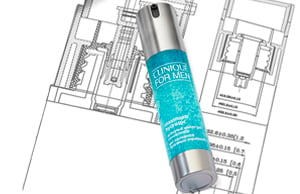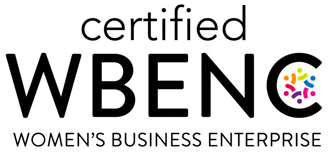Polymethyl Methacrylate (PMMA), being the first transparent thermoplastic material, contributed to the use of plastic materials as a substitute for optically transparent glass applications.
Properties of Polymethyl Methacrylate (PMMA)
Polymethyl Methacrylate (PMMA) is considered a quasi-commodity thermoplastic because it is slightly more expensive than typical commodity thermoplastics such as PE, PP, PVC, and PS. This is due to the combination of its physical and mechanical properties such as clarity, weatherability, and average to high strength. This material also has high dimensional stability, allowing it to be molded in either thin wall or thick wall applications.
These properties make PMMA an optimal choice for the cosmetic packaging industry. This material is a naturally amorphous thermoplastic material, and has a refractive index of 1.49, which is comparable to glass which has a refractive index of 1.60. PMMA has theoretically the maximum obtainable light transmission of plastic materials at 92-93%. It also has excellent UV light resistance and weatherability, making it a suitable material choice for applications where extended outdoor use is likely.
Recyclability of Polymethyl Methacrylate (PMMA)
Polymethyl Methacrylate (PMMA) is an exceptionally biocompatible, non-biodegradable, and 100% recyclable material. There are various methods to recycle PMMA. Let's discuss two of them:
- The first includes pyrolysis. In this method, PMMA is intensely heated without oxygen.
- The other method includes the depolymerization of PMMA with the help of molten lead to acquiring the monomer MMA in a purity greater than 98%. Nonetheless, this recycling method is not environmentally viable because of the utilization of lead and the creation of harmful byproducts.
How is PMMa made?
Polymethyl Methacrylate (PMMA) is made by free‐radical polymerization of methyl methacrylate -- when it is in the form of the sheet -- or suspension polymerization.
Selecting for use
Although Polymethyl Methacrylate (PMMA) has good chemical resistance for an amorphous material, it is however susceptible to strong acids, alcohols, and ethers, so be sure to consult with our experts with regards to the contents of your bulk when considering to use PMMA as the intended material selection for the product.








